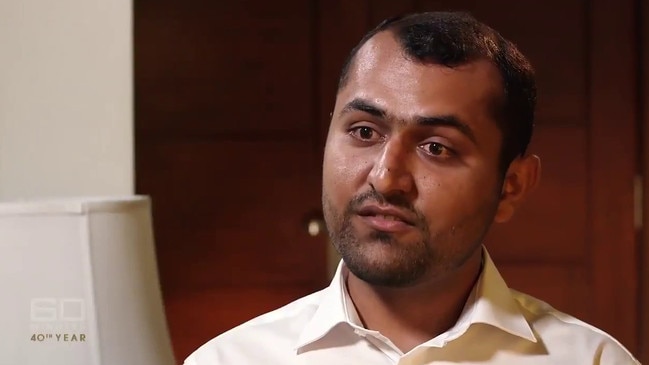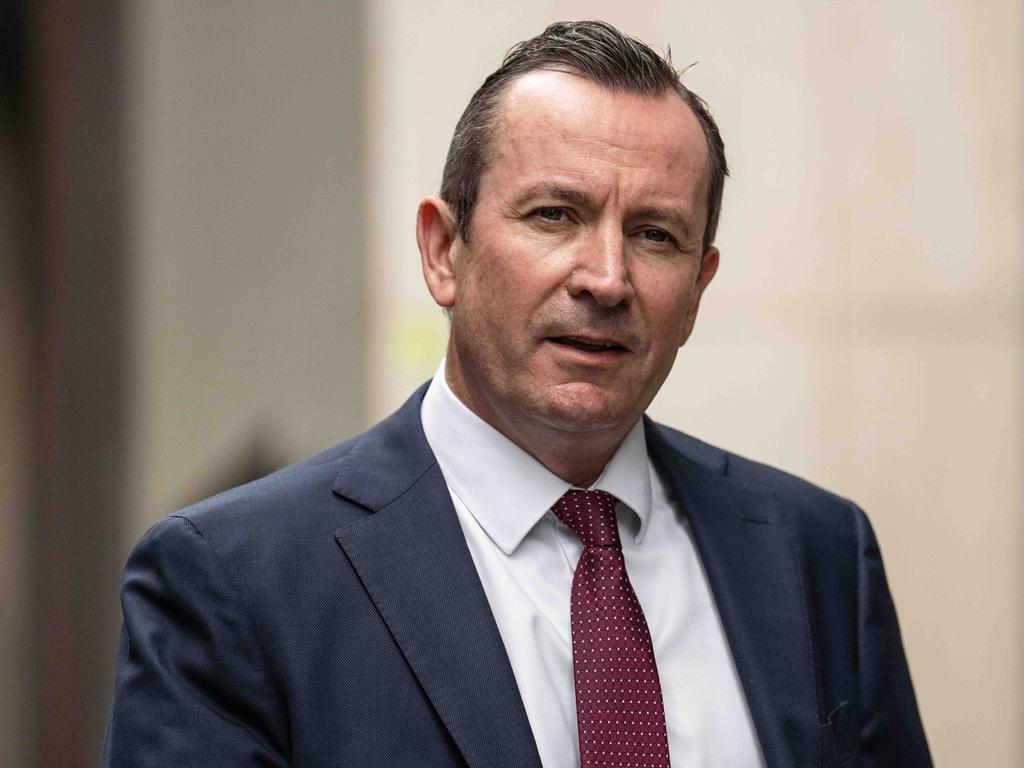Activists hid live sheep export footage payments
Animals Australia has admitted covering up payments of more than $148,000 to a whistleblower whose footage of distressed and dead sheep shut down Australia’s summer live export trade.

Animals Australia has admitted covering up payments of more than $148,000 to a whistleblower whose footage of distressed and dead sheep shut down Australia’s summer live export trade.
The extent of the payments made by the animal activist group can be revealed for the first time in confidential documents detailing the financial transactions obtained by The Australian.
Animals Australia has denied making any payments to ship workers on board the Awassi Express, while Agriculture Minister David Littleproud told The Australian an “investigation by the Department of Agriculture in 2019 found no evidence of payments”.
But a leaked statutory declaration, written and signed by Animals Australia strategy director Lyn White, discloses details of $US107,710 ($148,000) in various payments made to their star whistleblower Fazal Ullah and his family.
It was Mr Ullah’s footage of animal cruelty that in 2018 sparked the federal government to shut down the live export trade over the summer months.
Labor MPs are now reportedly pledging to end the live sheep export trade if they win the May election, in what is emerging as a divisive campaign issue.
Despite public denials, Ms White details the payments made to Mr Ullah in her statutory declaration dated February 2019.
The payments, she said, were approved by Animals Australia chief executive Glenys Oogjes and were covered by the Animal Justice Fund.
“Over the nine months between June 2017 and February 2018, documenting evidence across six Australian shipments, Mr Ullah received $US26,000 in financial support from the Animal Justice Fund,” Ms White wrote.
“Payments were transferred to Mr Ullah’s Pakistan bank account.
“Since departing the Awassi Express in February 2018, Mr Ullah has been provided with in financial assistance from the Animal Justice Fund. This includes $US38,157 in payments.”
Animals Australia also provided a $US32,053 education scholarship to Mr Ullah and he received a payment of $US1500 for the purchase of a mobile phone, while $US10,000 was given to Mr Ullah’s sister from a donor at the request of Ms White.
Mr Littleproud said an investigation by his department found no evidence that any payments to ship workers had been made, but The Australian understands Ms White’s statutory declaration was provided to the department.
In the document, Ms White admitted she chose to keep the payments quiet. “Animals Australia had made a considered decision not to publicise that Mr Ullah had received funding support from the Animal Justice Fund,” she wrote.
Ms White argued this was because the payments were not relevant to the evidence gathered and that it would cause the live export industry to undermine evidence that exposed cruelty in their industry.
She also said it “could aggravate any efforts or attempts to make Mr Ullah accountable under Pakistan laws” where there are no whistleblower protections.
“To suggest that such an individual, who has knowingly put their life at risk, to gather previously undocumented evidence of cruelty, wrongdoing, immoral behaviour and criminality, should not be remunerated in recognition of meritorious service – is ludicrous – and at odds with societal standards,” she said.
In response to questions from The Australian, Ms Oogjes said the organisation’s “conduct in this matter has been deemed appropriate by both federal and state authorities”.
“Mr Ullah, at great risk to himself, documented egregious suffering that had been occurring in the live export trade for decades,” she said.
“Animals Australia’s focus remains protecting a courageous young whistleblower who is set to be a key witness in an animal cruelty prosecution.”
Nationals Senator Matt Canavan said cash payments to workers should be illegal and called for the investigation to be reopened in light of the information contained in the statutory declaration.
“Now that the full scale of the cash for cruelty scandal has been exposed, the Department of Agriculture needs to come clean about what they knew about payments from Animals Australia to workers on the Awassi Express,” he said.
“They have used every weasel word in the Canberra playbook to avoid giving straight answers.”
The Department of Agriculture official Peter Timson denied to a senate hearing that any agreements had been struck not to disclose information received from Animals Australia about cash payments.
“For the purpose of our investigation as to whether there was cash for footage we can say that the investigation found no evidence of that and it didn’t proceed through Commonwealth DPP,” he said.
The Department of Agriculture, Water and the Environment Secretary Andrew Metcalfe said he had great confidence in the investigation because it was conducted by an official with police and law enforcement experience.
“I’m very satisfied that the work he has overseen is in fact quite proper and correct,” he said.
In her statutory declaration, Ms White claimed she had always intended to disclose the cash payments to the authorities.
However, the payments were not made public until a News Corp investigation in early 2019 revealed the existence, but not the scale, of the cash given to whistleblowers.
“Animals Australia’s intention has always been to fully disclose to relevant authorities this funding support, if and when, it became appropriate and relevant to do so,” she wrote.
She also said “Animals Australia chose not to clarify issues relating to payments to whistleblowers in recent media due to the clear sinister agenda at play; the selective use of material and the likelihood therefore that any related statements made by Animals Australia would be misrepresented when published.”
Ms White, who has worked at Animals Australia since 2003, claims her denials were not a lie and she claims the payments were not offered to him as an incentive to document or provide footage.
She claims Mr Ullah “made his decision to document evidence of conditions and breaches of Australian regulations without any encouragement or inducement from Animals Australia.”
Ms White began exchanging email correspondence with Mr Ullah, who was at the time a cadet trainee navigation officer, in November 2015 when he approached the organisation.
“I was able to ascertain that he had been on a livestock ship transporting cattle on South East Asia routes and that he had videos and photographs that showed animal suffering,” Ms White wrote in her stat dec.
“In one email he attached a photo of the washing of a cattle pen.
“I asked Mr Ullah whether he would be prepared to upload his videos and photographs to a dropbox account for me to view and provided a link to facilitate this.”
Ms White had asked him to bring any photos or videos that may show evidence of animal suffering.
“My assessment was that Mr Ullah had not secured the visual evidence needed to support his stated concerns,” she wrote.
“I described to Mr Ullah Animals Australia’s role in investigating the live trade and that over many years we had taken concerns, including first-hand witness accounts to authorities, yet changes were not made.
“I advised him that the only time we had been able to help improve conditions or create needed changes was when we had visual evidence that revealed the scale of animal suffering.”
Mr Ullah told Ms White that he would not be returning to work on livestock vessels “due to the distress the animal suffering caused him”, according to her stat dec.
Over a year later, Mr Ullah accepted a nine-month contract on the Awassi Express where he would complete his Navigation Officer’s training.
The pair met again in June, 2017 when the ship docked in Perth from Qatar, Kuwait and UAE where Mr Ullah showed Ms White footage he had filmed on the ship.
“In talking to Mr Ullah during that meeting, and in fully understanding the significant risks that he had taken, and was prepared to take over an extended period, I advised him of my belief that it was wrong of him not to receive remuneration (beyond his shipboard trainee salary of US $500. A month) considering he was actively investigating and documenting breaches of Australian regulations,” Ms White said.
She drew on the Animal Justice Fund, administered by Animals Australia, to pay Mr Ullah, with approval from chief executive officer Glenys Oogjes.
When Ms White met with Mr Ullah in February 2018, where the Awassi Express was preparing for a shipment to Russia, she asked him whether he would be willing to be interviewed by 60 Minutes to which Mr Ullah agreed.
“I conveyed to him that the Animal Justice Fund would cover travel, accomodation and living expresses to enable him to travel to a destination where his safety would be assured,” she wrote of the time when his employer would become aware of the footage he had taken.
In her statutory declaration, Ms White takes credit for various suspensions to the live export trade over the past two decades.
“My work at Animals Australia - in the field of live animal export investigations - led to the Federal government suspending the live export trade to Egypt in 2006; the production of Emanuel Exports Pty Ltd for breaches of the Animal Welfare Act 2002 in 2006; the 5 week suspension of the live cattle trade to Indonesia in 2011; as well as significant changes to Commonwealth legislation including the introduction got the Exporter Supply Chain Assurance System,” she wrote.
She was awarded an Order of Australia in 2014 and was twice nominated for Australian of the Year in South Australia and Victoria.








To join the conversation, please log in. Don't have an account? Register
Join the conversation, you are commenting as Logout